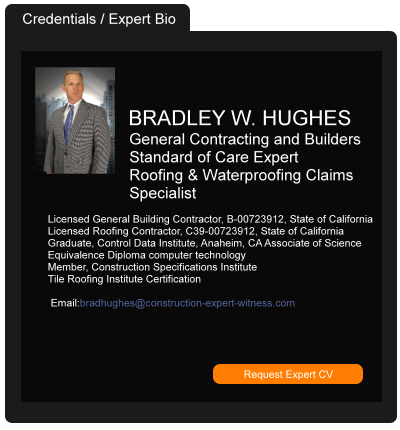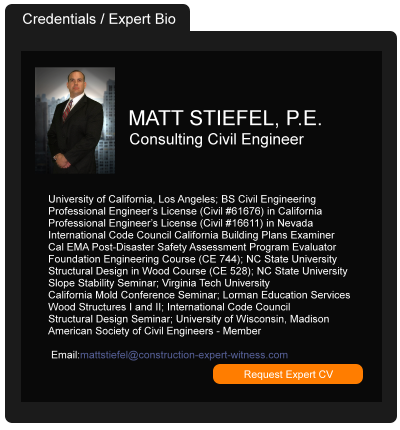The EPA’s Renovation, Repair, and Painting Rule: Are Contractors Aware of It?
March 12, 2015 —
Beverley BevenFlorez-CDJ STAFFRemodeling Magazine reported recently that some remodelers are unaware of the U.S. Environmental Protection Agency’s (EPA) Renovation, Repair and Painting (RRP) rule despite that it took effect back in April of 2010.
“There are still quite a few remodelers who have never heard of RRP,” Mark Schlager, president of Access Training Services, an EPA and Occupational Safety and Health Administration (OSHA) trainer in Pennsauken, N.J. told Remodeling Magazine.
According to the article, “The RRP rule applies to homes, apartments, and child-occupied commercial facilities built before 1978.” There are two RRP certifications required on every job: “a “Firm” certification for the company that contracts to do the work, and a “Renovator” certification for the person overseeing the work. A solo operator needs both certifications, which are good for five years.”
Read the court decisionRead the full story...Reprinted courtesy of
A Riveting (or at Least Insightful) Explanation of the Privette Doctrine
May 02, 2022 —
Garret Murai - California Construction Law Blog“The wheels of justice turn slowly, but grind exceedingly fine” – Plutarch
And grind they do . . . slowly. For long time readers of the California Construction Law Blog you may recall a case we reported on over three years ago in 2018 – Sandoval v. Qualcomm Incorporated – a rather sad case about a severely injured employee of an electrical subcontractor with an even more surprisingly ending.
In Sandoval, the 4th District Court of Appeals affirmed a $7 million judgment against project owner Qualcomm Incorporated in which a jury found that Qualcomm was liable under the Privette doctrine for injuries sustained by the employee who was severely burned over one third of his body by an “arc flash” from a live circuit breaker. The Court of Appeals, in a surprising decision, upheld the verdict holding that Qualcomm was liable even through: (1) Qualcomm had informed the electrical subcontractor that certain live circuit breakers were energized; (2) Qualcomm had not authorized the lower-tiered contractor to remove a panel that resulted in the arc flash; and (3) employees of Qualcomm were not in the room when the accident happened.
Fast forward three years to September 2021. Qualcomm attorneys petition the California Supreme Court for review of the Court of Appeal’s decision. And the Supreme Court granted review.
Read the court decisionRead the full story...Reprinted courtesy of
Garret Murai, Nomos LLPMr. Murai may be contacted at
gmurai@nomosllp.com
Land a Cause of Home Building Shortage?
June 17, 2015 —
Beverley BevenFlorez-CDJ STAFFDiana Olick of CNBC reported that builders are not keeping up with the housing demand due to a lack of supply of developed lots as well as the increasing price of available land.
"You have to find the land, you've got to be able to buy it and you've got to persuade someone to let you develop it. The one you hear the most about is the last one," Paul Emrath, vice president of survey and housing policy research at the National Association of Home Builders (NAHB), told CNBC.
Olick wrote that “[l]and prices have actually surpassed their peak values in many markets where builders are particularly active, especially in Texas.”
Read the court decisionRead the full story...Reprinted courtesy of
Florida Supreme Court Adopts Federal Summary Judgment Standard, Substantially Conforming Florida’s Rule 1.510 to Federal Rule 56
June 07, 2021 —
Lewis BrisboisEffective May 1, 2021, the Florida courts will transition to a new summary judgment standard meant to “align Florida’s summary judgment standard with that of the federal courts and of the supermajority of states that have already adopted the federal summary judgment standard.” In re Amends. to Fla. Rule of Civ. Pro. 1.510, 309 So. 3d 192, 192 (Fla. 2020). Consistent with this amendment, Florida Rule of Civil Procedure 1.510 has been amended to adopt the federal summary judgment rule, with exceptions for timing-related issues. The Florida Supreme Court’s most recent opinion on rule 1.510 and the text of new rule 1.510 can be found here.
As background, on December 31, 2020, the Florida Supreme Court adopted the federal summary judgment standard by amending Florida Rule of Civil Procedure 1.510(c) to include the following sentence: “The summary judgment standard provided for in this rule shall be construed and applied in accordance with the federal summary judgment standard articulated in Celotex Corp. v. Catrett, 477 U.S. 317 (1986); Anderson v. Liberty Lobby, Inc., 477 U.S. 242 (1976); and Matsushita Electric Industrial Co. v. Zenith Radio Corp., 475 U.S. 574 (1986) [(the ‘Celotex trilogy’)].” In re Amends. to Fla. Rule of Civ. Pro. 1.510, 309 So. 3d at 196. The court’s amendment was slated to take effect on May 1, 2021, subject to a public comment period. The court also sought guidance from the Florida Bar’s Civil Procedure Rules Committee. After careful consideration of numerous responses, the court ultimately chose to adopt the substance of the text from federal rule 56. Along with its amendments, the court provides substantial guidance as to how the Florida courts and practitioners should interpret the new rule. A summary of the court’s thorough discussion follows.
Read the court decisionRead the full story...Reprinted courtesy of
Lewis Brisbois
Denial of Claim for Concealment or Fraud Reversed by Sixth Circuit
October 01, 2014 —
Tred R. Eyerly – Insurance Law HawaiiThe Sixth Circuit reversed the district court's order granting summary judgment to State Farm based upon the insured's alleged concealment of the truth when questioned about a fire that destroyed his home. Rose v. State Farm Fire & Cas. Co., 2014 U.S. App. LEXIS 17312 (6th Cir. Sept. 8, 2014).
A fire destroyed the insured's home. He reported the loss to State Farm, who assigned Rob Raker to investigate the claim. Coverage was denied because State Farm contended that the "Intentional Acts" and "Concealment or Fraud" conditions of the homeowner's policy were violated.
The insured sued State Farm. The district granted summary judgment to State Farm after finding that some of the answers the insured gave to Raker were misleading and material. The court determined that the insured failed to identify multiple tax liens and judgments when questioned about his financial status.
Read the court decisionRead the full story...Reprinted courtesy of
Tred R. Eyerly, Insurance Law HawaiiMr. Eyerly may be contacted at
te@hawaiilawyer.com
ADA Compliance Checklist For Your Business
February 06, 2019 —
Danielle Carter - Bremer Whyte Brown & O'Meara LLPThe Americans with Disabilities Act (ADA) protects people with disabilities against discrimination in three important settings:
1. Employment (ADA Title I)
2. Government Services and Public Transportation (ADA Title II)
3. Commercial Facilities and Places of Public Accommodation (ADA Title III)
Since business owners typically act as both employers and facility managers, they must pay careful attention to Title I and Title III of the ADA. A business owner’s ADA compliance checklist should include the following:
1. ADA Compliance Audit for Structural Accessibility. The ADA and its accompanying regulations set forth detailed legal standards and requirements for accessible design, which specify, for example, the minimum width of doors to conference rooms, the maximum height of public drinking fountains, and the maximum thickness of hallway carpeting. Many older buildings were built without features that accommodate people with disabilities, such that the ADA may require improvements to be made to existing facilities.
Read the court decisionRead the full story...Reprinted courtesy of
Danielle Carter, Bremer Whyte Brown & O'Meara LLPMs. Carter may be contacted at
info@bremerwhyte.com
Appraisal Goes Forward Even Though Insurer Has Yet to Determine Coverage on Additional Claims
December 11, 2023 —
Tred R. Eyerly - Insurance Law HawaiiThe trial court's order granting the insured's motion to stay litigation and compel an appraisal was affirmed even though the insurer had not determined coverage on the insured's additional claims.Heritage Prop. & Cas. Ins. Co. v. Wellington Place HOA, 2023 Fla. App. LEXIS 6405 (Fla. Ct. App. Sept. 13, 2023).
The insured homeowner's association reported roof damage to its insurer, Heritage, after Hurrican Irma struck. Heritage agreed the damage was covered, but issued no payment because the amount of loss was less than the deductible.
The insured hired its own adjuster. The insured requested an extension of the policy's two year time limit to complete repairs because the claim was still in dispute and the insurer had not yet paid sufficient funds to allow necessary repairs. Heritage sent a revised estimate and asked the insured to send its adjuster's estimate in order to address any disputes. The insured submitted its adjuster's estimate of more than $6 million, including, for the first time, the cost to replace all the windows and sliding glass doors.
Read the court decisionRead the full story...Reprinted courtesy of
Tred R. Eyerly, Damon Key Leong Kupchak HastertMr. Eyerly may be contacted at
te@hawaiilawyer.com
Tenants Underwater: Indiana Court of Appeals Upholds Privity Requirement for Property Damage Claims Against Contractors
April 25, 2022 —
Melissa Kenney - The Subrogation StrategistIn United States Automatic Sprinkler Corp. v. Erie Ins. Exch., et al., No. 21A-CT-580, 2022 Ind. App. LEXIS 87 (Automatic Sprinkler), the Court of Appeals of Indiana (Court of Appeals) considered whether there is a privity requirement for property damage claims against contractors. The court imposed a privity requirement. The court also addressed whether a subrogation waiver in a contract with a tenant applied to damage caused by work done outside the contract, at the landlord’s request. The court held that the waiver did not apply.
In this case, United States Automatic Sprinkler (Automatic Sprinkler) contracted with a tenant (Contract Tenant) to inspect and test a sprinkler system at a commercial building in Indiana. The contract included a waiver of subrogation provision. The building landlord subsequently hired Automatic Sprinkler to repair a leak in the sprinkler system. After completing the repairs, the system failed and flooded the building, causing significant property damage to several tenancies.
Read the court decisionRead the full story...Reprinted courtesy of
Melissa Kenney, White and Williams LLPMs. Kenney may be contacted at
kenneyme@whiteandwilliams.com


































































